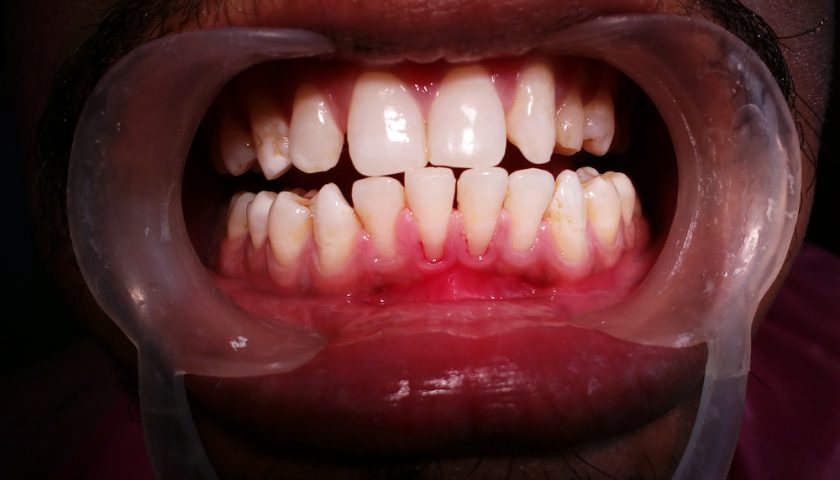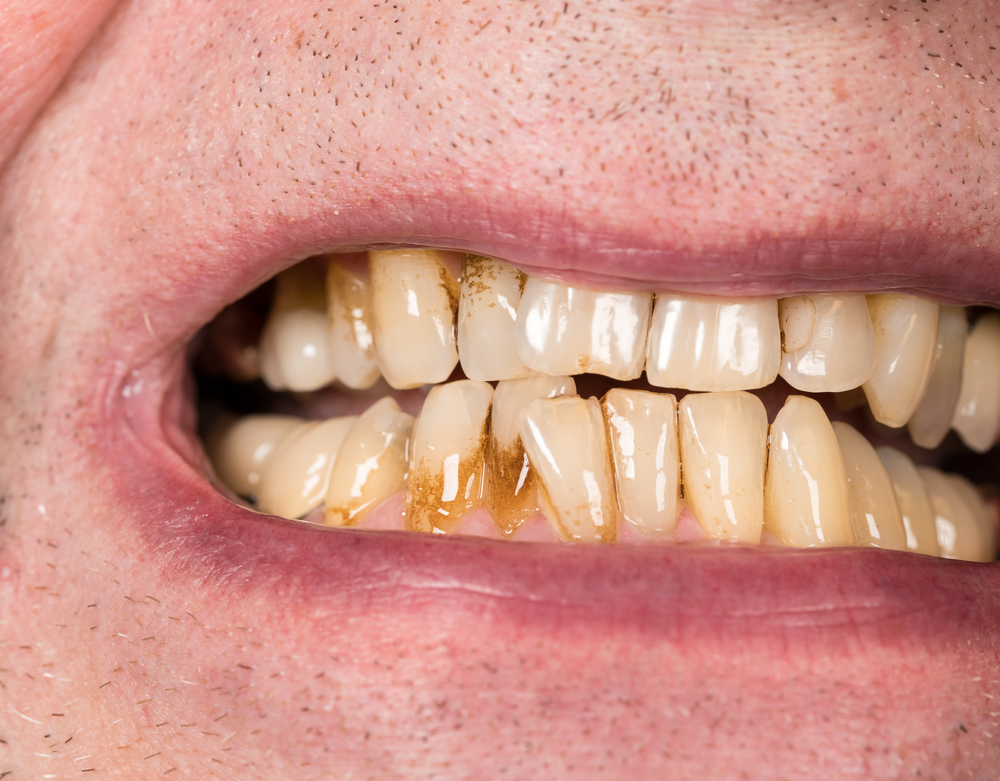Do you notice if your teeth appear to be getting longer or your gums appear to be pulling back from your teeth? You may have receding gums!
Receding gums! It is a condition in which your gums move away from the surface of your teeth, revealing more teeth and eventually the roots of your teeth. This is simply one symptom of gum disease – periodontal disease.
It can cause gaps between the teeth and the gum line. This helps germs to grow in difficult-to-reach areas. If left untreated, it can severely damage the structure of your teeth and jaw, and in the worst-case scenario, result in tooth loss.
What exactly causes the gum recession? What are the treatment options available? To get an answer to these questions, give this blog post a read.
Let us start!
Table of Contents
What Causes Receding Gums?
The California Dental Association (CDA) estimates that three out of every four persons suffer from periodontal disease, which includes receding gums.
There are numerous causes of gum recession. What are those? They include:
Periodontal disease
Periodontal gum disease is the main cause of receding gums. These are bacterial gum infections that destroy gum tissue and the bone that supports your teeth.
Other Causes and Factors
Gum recession can also be caused by the following factors:
Mouth trauma from injury – For example, body piercing studs in the lip or tongue, for example, might rub against the gum tissue and cause recession.
Smoking – It’s not just about smoking. If you chew tobacco or dip with a tobacco pouch, you’re more likely to experience gum recession.
Partial dentures that don’t fit well.
Teeth grinding – While sleeping teeth grinding can lead to excessive force on your teeth. As a result gum recession can occur.
Some other causes of gum recession also include:
- Poor oral hygiene
- Old age
- Medical conditions such as diabetes
- Hormonal changes in women
- Family history of gum diseases
Is Your Toothbrush Also Causing Receding Gums?
Brushing your teeth too hard may also cause your gums to recede. The gingival margin is the area of the gum that touches the crown of the tooth. This area can be damaged by brushing incorrectly or too aggressively, resulting in gum irritation and recession.
The incorrect brushing causes of gum recession are:
- Using a hard- or medium-bristled toothbrush
- Cleaning the teeth in a broad, horizontal motion with too much pressure
You can also learn about the causes of bleeding gums.

Symptoms to Look for Gum Recession
According to the best doctors from the dentist hospitals in Lahore, gum recession might cause the following symptoms:
- Tooth bleeds profusely after brushing or flossing
- Gum inflammation
- Bad breath
- Gums that hurt
- Gums that appear to be shrinking
- Exposed tooth roots
- Crooked teeth
Receding Gums Treatment
Now let’s see in detail the various receding gum treatments available.
Deep Cleaning
If you have a minor case of gum recession and see your dentist before it gets worse, your dentist will be able to treat it by deep cleaning the afflicted regions.
FYI: Tooth scaling and root planing are terms used to describe the procedure of deep cleaning your teeth.
Your dentist will remove plaque and tartar that has built up on your teeth, particularly below the gum line. Any exposed root surfaces will be smoothed to make it more difficult for bacteria to get caught in the grooves.
Antibiotics may also be recommended by your dentist to completely eliminate any hazardous germs that may linger in your system.
Also read about home remedies for gum bleeding disease.
Surgeries to Treat Receding Gums
According to the top reviewed dentist in Karachi, Dr. Muhammad Ahsan Bhatti “If your deep cleaning receding gums treatment doesn’t work due to significant bone loss or pockets that have grown too deep in the gums, you may need surgery to help heal the damage caused by gum recession.”
The following are some of the surgical methods performed to address receding gums:
1- Regeneration
If your jaw bone has been destroyed due to gum recession, you may require regeneration surgery to help you repair the bone and tissue.
Your dentist will fold back your gum tissue during pocket depth reduction surgery to eliminate any microorganisms. Then, a regenerative material such as a membrane, or tissue-stimulating protein is used to boost your body’s natural bone and tissue regeneration.
The gum tissues will be fixed back over the root of your teeth after the regenerated tissue is in place.
Open Flap Scaling and Root Planing
The dentist folds back the damaged gum tissue. It is followed by eliminating the harmful bacteria from the pockets, and then snugly fixing the gum tissue in place over the tooth root. This helps in removing or lowering the size of the pockets.
Soft Tissue Graft
There are several types of gum tissue graft treatments, but the connective tissue graft is the most prevalent.
In this receding gum treatment surgery, your dentist will cut a flap of skin from the roof of your mouth or palate, which will be removed and connected to the gum tissue surrounding the exposed roots of your teeth during this treatment.
How to Prevent Gum Recession?
The below mentioned tips can help prevent the development or progression of receding gums.
Practise Good Oral Hygiene
The easiest strategy to avoid a receding gum line is to maintain a healthy personal oral care on a daily basis. Brush and floss your teeth every day. Brushing your teeth in tiny, circular motions with a toothbrush with softer bristles is recommended.
Wear A Mouthguad
A mouthguard, also known as a splint, can help reduce gum recession caused by tooth grinding during sleep. Mouthguards distribute pressure evenly throughout the jaw and serve as a physical barrier between the upper and lower teeth.
Visit the Dentist Regularly
See your dentist at least twice a year, or as recommended by your dentist. However, if you already have gum recession, your dentist may want to visit you more frequently throughout the year to monitor its progress. To find the best dentists near you for your receding gums consultation, you can make an appointment via Healthwire.pk.
